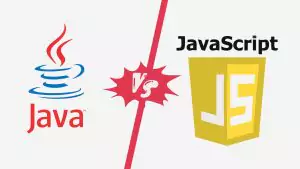Java, an object-oriented language known for its versatility and wide range of libraries, has become a staple in the world of software development. This article aims to guide you through the process of calling a method in Java, one of the fundamental aspects that every aspiring Java developer should master.
What is a Method in Java?
Before we delve into how to call a method, let’s understand what a method in Java actually is. In Java, a method is a block of code within a class that performs a specific task. Methods help in modularizing the program, promoting reusability and making the code more organized.
A method in Java must be declared within a class. Method declaration informs the compiler about the method name, return type, and parameters. The syntax for declaring a method in Java includes the return type, followed by the method name, and a pair of parentheses which may enclose parameters.
returnType methodName(parameter1Type parameter1Name, parameter2Type parameter2Name, ...){
// Method Body
}
For instance, consider a method called printName that takes no parameters and doesn’t return any value:
public void printName() {
System.out.println("CodeGym");
}
Here, public specifies the access level of the method, void is the return type indicating that the method doesn’t return any value, and printName is the name of the method.
How to Call a Method in Java
After the method declaration, you can execute or call the method. This is known as a method call. When a method is called, the program execution jumps to the method’s code and executes it.
To call a method in Java, you have to use the method name followed by parentheses and a semicolon. If the method is in the same class and is non-static, you can call it directly. For static methods, you have to use the class name followed by a dot and the method name.
methodName();
If the method requires parameters, you have to pass them inside the parentheses.
Consider the printName method declared earlier. To call this method, create an object of the class in which the method is defined, and then use the object to invoke the method.
public class MyClass {
public void printName() {
System.out.println("CodeGym");
}
public static void main(String[] args) {
MyClass obj = new MyClass();
obj.printName();
}
}
One of the key benefits of using methods in Java is reusability. When you encapsulate a piece of code in a method, you can reuse it simply by calling the method, instead of writing the same code repeatedly. This not only makes your code cleaner but also easier to manage and debug.
Return Types and Parameters
A method in Java can return a value. The return type of the method specifies the data type of the value that the method returns. If a method does not return a value, its return type is void.
Methods can also take parameters, which are values you can pass into the method. Parameters allow methods to perform operations on variable data.
Conclusion
Mastering methods is crucial for anyone aspiring to become a proficient Java developer. Not only do methods help in making the code more structured and readable, but they also promote reusability and modularization. Whether you’re defining methods or invoking them, understanding the syntax and principles behind methods is essential. Resources like online courses and classes can be invaluable in sharpening your skills in Java programming.
FAQ
How do you define a method in Java?
A method is defined within a class in Java and has a return type, a name, and may have parameters. It also contains a block of code that performs a specific task.
Where can a method be called in Java?
A method can be called from within the same class, from other classes or even from different Java applications. You can call it from the main method, from constructors, or from other methods.
What is the purpose of methods in Java?
Methods are used for code reusability and to modularize the code. They help in breaking down complex problems into smaller, manageable pieces.
Can a method have parameters in Java?
Yes, a method can have parameters. Parameters are variables that are passed to the method when it is called.
What is the return type of a method in Java?
The return type of a method specifies the type of value that the method returns. If a method does not return a value, its return type is void.
Why are methods used in Java?
Methods are used in Java to perform specific tasks. They help in organizing code, making it more readable and reusable.
What is the convention for naming methods in Java?
In Java, the convention is to start the method name with a lowercase letter and use camelCase for multiple words, for example, calculateSum.
When does a method return in Java?
A method returns when it completes all the statements in its body, or when a return statement is executed.
What are the advantages of using methods in Java?
Using methods in Java makes code reusable, organized, and modular. It helps in breaking down complex code into smaller chunks, making it easier to read and maintain.
Follow us on Reddit for more insights and updates.





Comments (0)
Welcome to A*Help comments!
We’re all about debate and discussion at A*Help.
We value the diverse opinions of users, so you may find points of view that you don’t agree with. And that’s cool. However, there are certain things we’re not OK with: attempts to manipulate our data in any way, for example, or the posting of discriminative, offensive, hateful, or disparaging material.